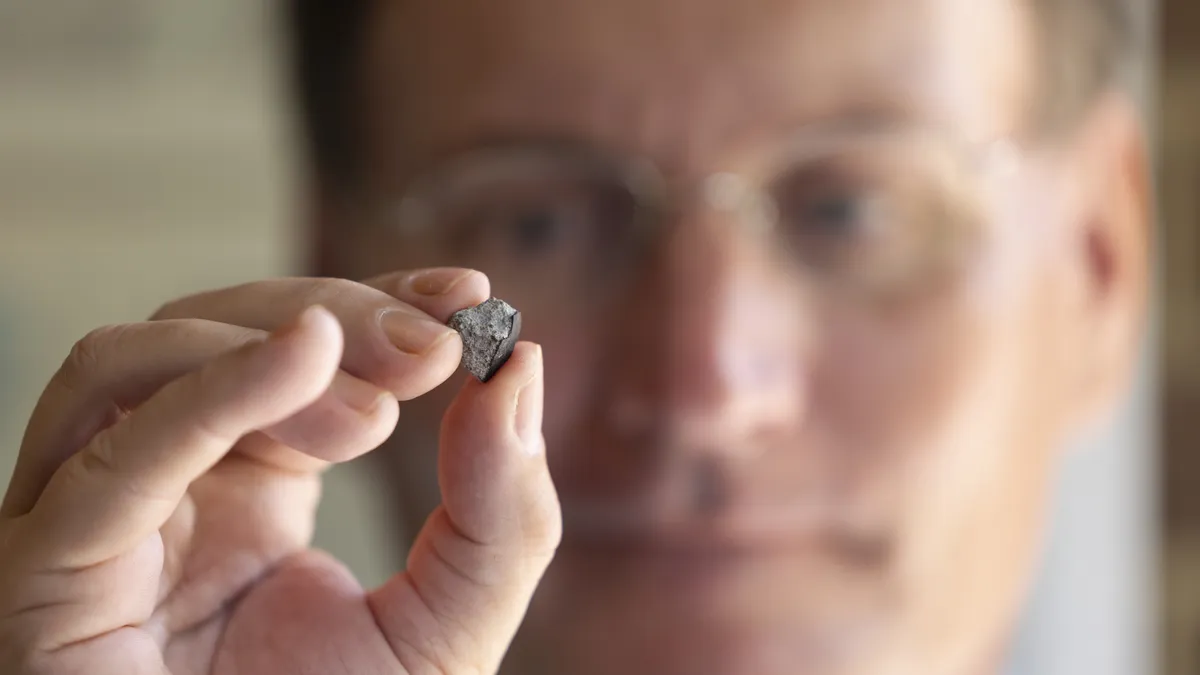
A fascinating event occurred earlier this summer when a meteorite struck a home in McDonough, Georgia. Researchers have determined that this space rock may be approximately 20 million years older than Earth, dating back to around 4.56 billion years ago. The meteorite made its dramatic entrance as a fireball on June 26, captivating onlookers across the Southeast.
On the evening of June 26, a remarkable fireball lit up the sky. NASA's Meteoroid Environment Office estimated that this 3-foot-wide (1 meter) object was traveling at a staggering speed of 29,000 mph (47,000 km/h). The American Meteor Society received over 240 sighting reports from witnesses who experienced the breathtaking spectacle. Many residents also reported hearing and feeling a loud sonic boom, which was initially mistaken for an earthquake, according to Smithsonian Magazine.
The meteorite's journey ended abruptly when it struck a house in McDonough, penetrating the roof, ceiling, and even the heating, ventilation, and air conditioning (HVAC) duct. The impact created a dent in the living room floor, accompanied by a noise resembling a close-range gunshot. Scott Harris, a researcher in the geology department at the University of Georgia (UGA), explained that as meteorites enter the Earth’s atmosphere, they slow down significantly. However, this particular meteorite was still moving fast enough to cause damage upon impact.
Harris's analysis of the meteorite revealed that it originated from beyond Mars. It is linked to a larger asteroid that broke apart approximately 470 million years ago. This newly named McDonough meteorite belongs to a group of asteroids located in the main asteroid belt between Mars and Jupiter. Harris explained that pieces of asteroids can enter Earth-crossing orbits, eventually aligning with Earth’s orbit, leading to impacts like the one in McDonough.
Following the impact, Harris utilized optical and electron microscopy to analyze 0.8 ounces (23 grams) of rock fragments retrieved from the scene. His findings suggest that the meteorite is a stony meteorite (chondrite) characterized by low metal content. Ongoing research at UGA aims to further investigate the rock fragments, while additional pieces that landed in the vicinity will be showcased at the Tellus Science Museum in Cartersville.
Meteorites are quite uncommon in Georgia, with the McDonough meteorite marking only the 27th documented instance in the state’s history and the sixth to be observed as it fell. Harris noted a shift in the frequency of these events, stating that meteorite sightings are now occurring more frequently than in the past. “This used to be something expected only once every few decades, not multiple times within 20 years,” he remarked, attributing this increase to modern technology and an alert public that aids in recovering meteorites.
As research continues, the McDonough meteorite serves as a captivating reminder of our planet’s connection to the cosmos and the ongoing mysteries that lie beyond Earth.